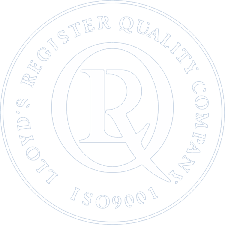SinoScan UK newsletter article
What the ‘new-normal’ for manufacturing looks like
SinoScan UK newsletter article
What the ‘new-normal’ for manufacturing looks like
A little over 2 months ago, the world changed for all of us. Having watched on as interested spectators as a new disease brought large swathes of China to a standstill, few foresaw that just a few weeks later we would be unwittingly joining the fight to help our own health system stay functioning, as this same disease quietly spread undetected on our shores.
Roll forward to today and for many, the shock and fear has subsided, to be replaced by a cautious desire to resume ‘normal’ life as quickly (and as safely) as possible.
However, it is becoming more and more apparent that the old ‘normal’ will not be viable in the short term, and potentially ever. So, when it comes to the manufacturing sector, we wanted to explore what the ‘new-normal’ might look like now and into the future.
Short term to major shift
In every major crisis, we have witnessed the implementation of short-term measures that have lasted for generations. As recent examples:
- The 9/11 Attacks elevated the importance of security across the globe. Many travel security, cyber security and surveillance measures implemented back then are still prominent to this day.
- The Great Recession of 2007-2009 saw the shift from the “ownership economy” to the “experience economy” and the reliance on off-shore production in order to remain competitive.
There is no question that the current pandemic has already driven a number of consumer and business trends, including online learning, remote working, video conferencing and the rise of delivery services; which look likely to be here for the long term.
Short term effects on manufacturers
The pandemic hit manufacturers in an unexpected and truly unprecedented way. In modern manufacturing, it’s the first time demand, supply and workforce availability have been affected globally, at the same time.
Companies that deliver essential goods, like personal care, groceries and medication have been struggling to meet demand, driven initially by panic buying. A US firm that sells bamboo toilet paper, for example, saw a 5,000% increase in its sales on Amazon during the coronavirus pandemic.
On the other side of the coin, many have experienced dramatic drops in demand and extreme pressure to cut operational costs. Many manufacturers have experienced disruptions across their supply chains of parts and raw materials.
Social distancing and COVID-19 secure guidelines have undoubtedly added an additional level of pressure for manufacturers, as many have experienced numbers like 40-50% of their workforce being unable to perform their duties on-site. Whilst office-based staff were able to shift to remote working, most factories are simply not designed to operate remotely, and the lack of digital tools and remote infrastructure in place saw many having to cease production.
Looking to the future
As manufacturers scramble to adjust to the short-term situation, we need to look past the fog of uncertainty, towards the long-term changes required in the industry, and critically, the undeniable opportunities that are born from adversity.
Automation
Anything that’s true surrounding the benefits of intelligent and flexible automation in traditional circumstances is doubly true now – it enables better efficiency, reduces costs, increases output and, importantly, lowers reliance on manual labour. The possibilities of automation that are powered by software and AI are endless – it offers more dynamic, flexible lines, with changeovers happening at the touch of a button.
Expanding relationships
Supply chains are in a state of shock currently. For those manufacturers that rely on a limited set of suppliers across the globe, now is the time to invest in making supply chains more transparent, predictable and resilient, by using well-established suppliers and using companies that have the experience and capability to manage complete supply chains on the behalf of businesses.
Local production
Those operating in electronics manufacturing will remember the impact that the earthquake and tsunami that struck Japan in 2011 had on global supply chains. Although it was a localised crisis, it had global repercussions. Now, we’re dealing with a global outbreak that’s affecting everyone, in every nation, but strikes at different times with differing severity, making the recovery for supply chains very unpredictable.
Considering more localised production may be an option for some manufacturers. However, this will not be a complete solution, particularly when products are being manufactured for global distribution. Also, due consideration needs to be given to the capital investment required in plant, labour and development of skills to localise production.
Virtual shift
Fundamentally, most manufacturing still requires people to be physically on-site – operators run machines, maintenance staff repair machines and contractors need site access to deliver services. With social distancing measures in place, manufacturers may have to lose up to 50% of their personnel.
As manufacturers face this dilemma, we will see the rapid adoption of remote diagnostic, management and collaboration tools.
Changing times
What is clear to the Sinoscan UK team, is that those manufacturers who embrace the new opportunities arising out of the ‘new normal’ will be those that thrive.
Innovation, flexibility and embracing technology are the values that are now needed – and arguably always have been.
Building greater responsibility, agility, responsiveness and resilience into manufacturing operations is now crucial. And given the ‘new-normal’ looks here to stay for a while, all manufacturers should look closely at their end-to-end operations, to assess how well-positioned they are to deal with the disruptions they have recently experienced, on a regular basis.
The present challenges give us an opportunity to learn, adapt and evolve manufacturing, to ensure it is appropriately prepared for our new future, and here at SinoScan UK, we look forward to helping you to do just that.


